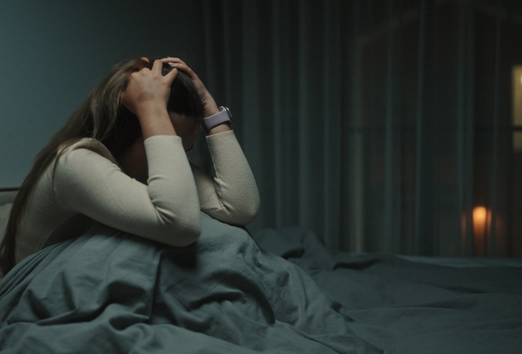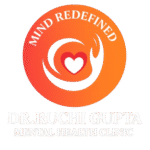Understanding Obsessive-Compulsive Disorder : Symptoms, Causes & Treatment
Obsessive-Compulsive Disorder (OCD) is often misunderstood, but it affects millions of people around the world. The disorder is characterized by persistent, unwanted thoughts (obsessions) and repetitive actions or mental rituals (compulsions) aimed at reducing the anxiety caused by these thoughts. While everyone may experience fleeting thoughts or engage in habits, for those with OCD, these behaviors are distressing, time-consuming, and interfere significantly with daily life.
What is Obsessive-Compulsive Disorder?
OCD is a chronic disorder, meaning that it can affect anybody of any age. It also tends to begin at any time, although the majority of cases usually begin in childhood or early adolescence. The cycle of obsession and compulsion characterizes OCD: an obsession produces an anxiety response, which fades after the performance of a compulsion. Compulsive behavior can be something as simple as hand washing or checking of locks and counting in sequences.
Symptoms of Obsessive-Compulsive Disorder
The symptoms of OCD vary from one individual to another. The disorder is broadly categorized into two parts: obsessions & compulsions.
Obsessions: These are unwanted and intrusive thoughts that cause anxiety & distress. Common obsessions include:
- Fear of contamination or dirt.
- Concerns about whether the task was done right, such as locking doors or turning off appliances
- Need for symmetry or exactness.
Compulsions: In an effort to reduce the distress caused by obsessions, individuals with OCD engage in repetitive behaviors or mental rituals. Common compulsions include:
- Washing or cleaning repeatedly.
- Checking things, like locks and appliances multiple times
- Counting or repeating tasks until they feel “just so.”
- Ordering or arranging items in a specific pattern.
The compulsions do not always make sense in relation to the obsession. For instance, a client may feel compelled to wash their hands multiple times because they fear contaminants, even though there is nothing to suggest that they have contaminated themselves.
Causes of Obsessive-Compulsive Disorder
The cause of OCD is not clearly known, but researchers have indicated that it has something to do with the combined genetic, biological, and environmental factors.
Genetics: Studies reveal that OCD is hereditary because in some studies it has been shown that it runs in families. This means that people with first-degree relatives and such as a parent or sibling, with OCD are more likely to develop the disorder.
Brain Structure and Function: Some research suggests abnormalities in the frontal cortex and basal ganglia of the brain as a possible cause for OCD. These areas of the brain are responsible for decision-making, behavior regulation, and emotional responses. When these brain regions malfunction, it may result in the obsessions and compulsions seen in OCD.
Environmental Factors: Stressful or traumatic life events, such as abuse, death of a loved one, or significant life changes, can trigger or exacerbate OCD symptoms. Some infections or illnesses have been reported to be associated with the onset of OCD in children, though this is a research topic under study.
Treatment of Obsessive-Compulsive Disorder
1. Cognitive Behavioral Therapy (CBT)
Cognitive Behavioral Therapy is the best form of psychotherapy in the treatment of OCD. CBT is where one learns to identify and challenge irrational thoughts that cause a person’s compulsion. ERP primarily involves exposing a person to the thoughts, images, or situations that trigger anxiety and then encouraging them not to engage in the compulsion they would normally do as a response. This slowly reduces the extent of their anxiety and compulsive impulse to carry out the act.
Dr. Ruchi Gupta is experienced in administering CBT and ERP techniques that are empathetic and well-structured in nature. She helps individuals regain mastery over their lives by targeting the source of the compulsions and walks them through the process of breaking the cycle of obsession and compulsion.
2. Medication
Sometimes, medication is provided for OCD. The commonly used drugs for the treatment of OCD are a family of antidepressants called Selective Serotonin Reuptake Inhibitors, or SSRIs. Such drugs have been demonstrated to reduce the severity of symptoms in OCD, but usually, the response is enhanced through psychotherapy, especially CBT.
Dr. Ruchi Gupta makes a consultation with the patient in which she helps him/her identify the correct treatment approach by using medicine, therapy, or the combination of the above, in order to ensure an optimal outcome.
3. Other Treatments
If the traditional treatments for severe OCD fail, then there is other alternatives that could be employed
Transcranial Magnetic Stimulation: It’s the procedure that does not harm, using magnetic fields and stimulates nerve cells in your brain. It is given only after other treatments haven’t cut OCD symptoms.
Deep Brain Stimulation (DBS): In extreme cases that are not responsive to other forms of treatment, DBS can be given. In DBS, electrodes are implanted in a specific part of the brain to treat overactive signals in specific parts of the brain.
Overcoming Obsessive-Compulsive Disorder
Managing OCD may not be easy. However, appropriate treatment can keep the condition in check and lead people living with the disorder into successful lives. Here’s how to manage OCD:
Practice Mindfulness: Techniques of mindfulness can help individuals maintain their presence and not allow obsessive thoughts to consume their minds. Meditation, deep breathing exercises, and other mindfulness activities can be very effective in the control of anxiety.
Support System: A support network of family, friends, and professionals is necessary to manage OCD. Therapy groups & support groups of people with OCD can also provide a sense of community & reduce feelings of isolation.
Avoid Self-Criticism: Individuals with OCD may feel embarrassed or ashamed of their symptoms. It’s important to remember that OCD is a medical condition and not a personal failing. Self-compassion and understanding are key to recovery.
Why Seek Professional Help from Dr. Ruchi Gupta?
Dr. Ruchi Gupta, a highly experienced clinical psychologist, offers a holistic and personalized approach to the treatment of OCD. With her background in both clinical psychology and corporate wellness, Dr. Gupta is uniquely positioned to support individuals with OCD in all aspects of their lives. She combines evidence-based therapeutic techniques with compassionate care to ensure that each patient receives the best possible treatment.
Whether you are struggling with intrusive thoughts or engaging in compulsive behaviors, Dr. Ruchi Gupta provides the tools and strategies necessary for managing OCD and improving mental health. Through her tailored therapy sessions, Dr. Ruchi Gupta helps patients gain greater insight into their condition and empowers them to make positive changes in their lives.
Conclusion
Obsessive-Compulsive Disorder is a complex and challenging condition, but with the right treatment and support, it is possible to manage and reduce its impact. If you or someone you know is struggling with OCD, reaching out to a professional like Dr. Ruchi Gupta can provide the guidance and support necessary for recovery. By addressing the root causes of OCD and utilizing effective therapeutic strategies, individuals can break free from the cycle of obsession and compulsion, leading to a healthier, more fulfilling life.
Dr. Ruchi Gupta’s expertise in clinical psychology and her commitment to improving mental well-being make her an invaluable resource for anyone seeking help with OCD.







